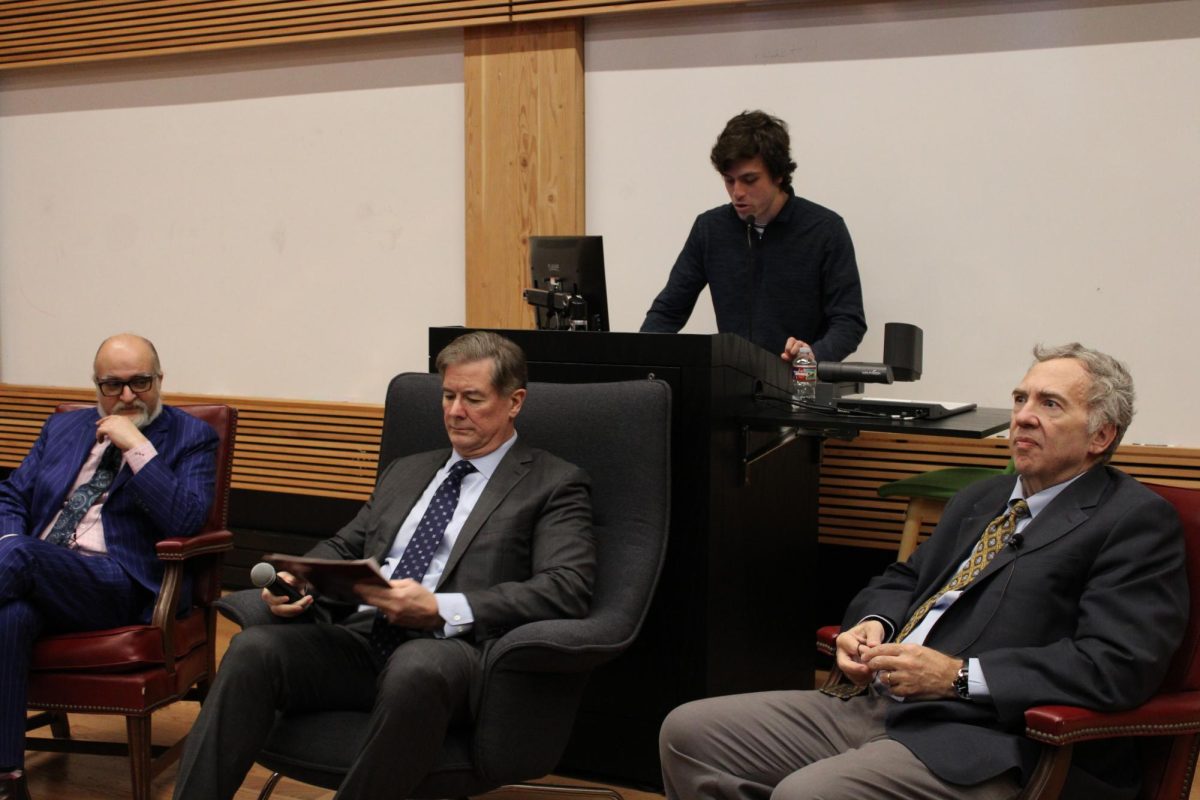I hadn’t intended on publicly stating any further opinions, as the geopolitical situation has become sufficiently complicated that prudence mandates discretion. However, as a column has now been published on me, I feel the need to respond as a point of honor.
Trinity’s Muslim Student Association (MSA) begins their column with the assertion that I have no prior knowledge of the conflict between Israel and Palestine. This is correct. While I have done some research on the topic, my knowledge is utterly insufficient to enable me to take a side in this conflict, which is why I did not. In fact, my comments on the conflict were limited to its impact on Harvard’s campus and the student organizations there.
Their second assertion is that I was wrong to compare Students for Justice in Palestine (SJP) to the KKK. However, I did not do so. I instead compared Hamas, the terrorist group that started this war, to the KKK. After all, both are groups which seek to remove an ethnic group from their lands by violence and terrorism. SJP simply argues in favor of Hamas — a fact MSA conveniently ignores while claiming that I didn’t provide any examples of SJP being an “aggressive activist group.” This means either that MSA did not read my letter before attacking me over it in print, or they are deliberately misrepresenting it. The latter case constitutes libel, which is a matter that offending parties can be sued for. MSA isn’t worth my time, nor do I have anything to gain by suing them, but I urge them to be more careful.
In the same paragraph, they accused me of Islamophobia and xenophobia completely baselessly. This is especially ironic when considering that one of the major complaints of pro-Palestinian activists has been the tendency of pro-Israel activists to accuse dissenters of anti-Semitism. If I am Islamophobic and xenophobic for daring to criticize Palestine, then I guess MSA must be bigoted towards Americans, white people and Christians for daring to disagree with me. This kind of mudslinging is petty, nonproductive and has no place in academic discourse.
MSA encourages their readers to read their ceasefire proposal. I have. It is a scathing document which condemns the Israeli “apartheid regime” and their “genocide” towards Palestine. Notably, however, they do not mention Hamas once. I will repeat for emphasis: the registered terrorist organization which initiated the conflict is not mentioned once in the document which proposes a solution to the conflict. Additionally, the document mentions in a list of Israeli war crimes intentionally targeting civilians and hostage-taking, actions taken by Hamas at the onset of the conflict that are not acknowledged by MSA.
A previous edition of the newspaper posted an article called “Colonialism and Genocide don’t have two sides.” I suppose that’s true when the actions of one side aren’t talked about. There are only two possible conclusions here: either MSA is so uninformed on the conflict that they are unaware of one of the two sides, in which case this petition is the most gross violation of academic integrity I have ever seen in my life, or they are baldly lying to their fellow students, their teachers and their administration. These are not accusations I make lightly. Public spreading of misinformation is no laughing matter. It should be apparent by this point that MSA has no leg to stand on when they accuse me of “making polarizing, fictitious and unsubstantiated claims.” I find it extremely disappointing and disheartening that so many student organizations were signatories to such a misleading petition.
Finally, we get to former President Claudine Gay, the main subject of my original letter. MSA acknowledges her misconduct, which I appreciate. However, they then devote three full paragraphs to the double standards in the conduct of the accusers, which I did not deny. Many of them, particularly the politicians, can hardly be counted as upstanding members of society, and I do not doubt that there was some political impetus behind their probe. I would also be willing to believe that there are many members of the ‘old boys’ club’ in academia who did not earn their positions through merit and, if subjected to the same standard of criticism as Gay, would be out on their ears within a week. My letter did not defend or deny hypocrisy in academia — it simply pointed out that said hypocrisy is irrelevant to the objective fact that Claudine Gay is guilty of plagiarism. When MSA attempts to refute my letter by talking about that hypocrisy, this is called a strawman argument — an elementary logical fallacy that students are taught to avoid in middle school.
I welcome MSA’s criticisms — as I do all others — as an opportunity for my own personal growth, and I sincerely hope they will display more academic professionalism in their future endeavors.
– Morgan Powers, Class of 2027
The opinions stated in this submission do not necessarily reflect those of Campus Publications or the University itself.






Daniel • Mar 10, 2024 at 10:36 am
Good for you posting this. I think you nailed it—
Everything is so easy and so simple when you hear one side.
And when one side is rooted in 16 million people, everyone is shocked when they suggest their side isn’t being heard.
I can’t imagine being on campus in this environment.